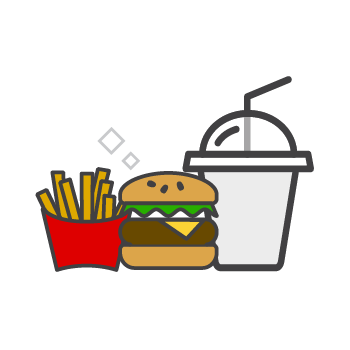If You’ve Been Diagnosed with Colon Cancer, We’ve Got Some Tips That Might Help
by Carolyn Lee Jul 18, 2022

Colon Cancer or colorectal cancer affects millions of people globally. According to the U.S. National Library of Medicine (NCBI), data collated in 2018 indicates that colon cancer is the world’s fourth most commonly diagnosed cancer. It is also the third most deadly cancer. We are looking at colon cancer, its causes, symptoms, and the questions you should ask during your first visit with an oncologist.
What is colon cancer?
Colon cancer begins in the large intestine (colon), and although it can happen at any age, it typically affects older adults. This type of cancer begins as small, noncancerous (benign) clumps of cells called polyps forming inside the colon. Some of these polyps can become colon cancers over time. These small polyps may produce few and, in some instances, no symptoms. Doctors recommend regular screening tests to help identify and remove polyps before they become cancerous.
What are the causes, symptoms, and treatment options?
It is challenging for doctors to pinpoint the specific causes of colon cancer. However, there are risk factors that increase the chances of developing colon cancer. Some risk factors contributing to colon cancer include age, inflammatory intestinal conditions, diabetes, genetics, and ethnicity. Some “modifiable” elements can be controlled, like cigarette smoking, alcohol consumption, high body mass index, and lack of physical activity.
The symptoms of colon cancer generally include changes in bowel habits, blood in the stool, weight loss for no known reason, and tiredness. Treatment depends on the stage. However, the most common modality includes surgery and chemotherapy.
What should you expect from an oncologist during your first visit after a colon cancer diagnosis?
During the first visit, the patient should expect an informative conversation. The oncologist might speak to you (patient) about what is happening with your health and the disease. This conversation also allows the doctor to get to know you better. Based on this conversation, the oncologist will learn about your goals, hopes, and concerns and can work to create a treatment plan that is best suited for you.
Five important questions to ask during your first consultation with an oncologist.
Dealing with a diagnosis of colon cancer may be overwhelming but try to ask some vital questions to help better understand what is happening with your health and how you can get better. Some questions you should ask the oncologist include:
- What type of cancer do I have?
- What is the stage of my cancer?
- What are my treatment options?
- What is the goal of my treatment?
- What are the side effects related to treatment?
What essential documents do you need during your visit with an oncologist?
When you visit the oncologist, take your previous studies for reviewal. Your biopsy results, radiological studies (for example, CT scans of the chest and abdomen), laboratory tests, and CEA tumour marker determination are relevant documents you should have with you.
Are you allowed to have someone with you during the initial visit?
Some doctors recommend that patients bring in their primary caregiver during the initial consultation. Most patients are typically overwhelmed with the diagnosis and the information shared. The patient may not process 70% of the data transmitted during an initial consultation. So, having someone to support you during that initial visit is crucial.
Are there significant lifestyle changes you should prepare for or make?
A diagnosis of colon cancer means that you will need to make changes to your lifestyle. Significant changes you should consider making include having a well-balanced diet rich in whole grains, vegetables, and fruits while limiting the consumption of red meats and processed meat. It’s also prudent to keep physically active.
What should you do if you suspect you may have colon cancer but are afraid to get checked out?
Colon cancer is highly treatable, and early detection saves lives. Seek medical advice and visit your nearest gastroenterologist to discuss your symptoms and the need for a colonoscopy. Changing our culture and making colorectal cancer screening a part of our lives is crucial. Once you’re 45-year-old, you should visit your gastroenterologist to discuss cancer screening options.
We hope that this information helps you or someone you know. At Yello, we want you to access the products and services you need quickly. So, use our Find Yello listings to find doctors, hospitals, health centres, or the related services, you may need.
Sources: Dr Ramon Yacab, Mayo Clinic, and Healthline.








